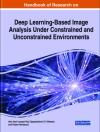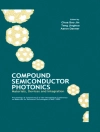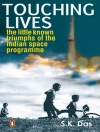This book presents cutting-edge research and developments in the field of medical and biological engineering, which a special emphasis on activities carried out in the Asian-Pacific region. Gathering the proceedings of the 12th Asian-Pacific Conference on Medical and Biological Engineering (APCMBE 2023), held on May 18–21, 2023, in Suzhou, China, this second volume of a two-volume set covers advances in computer-aided surgery, biomechanics and micro-nanoengineering, health informatics and health engineering, as well as computational modeling and simulation, as well as AI applications in biology and medicine. It addresses a broad audience of researchers and professionals active in biomedical engineering, biomechanics, medical biophysics, and health informatics.
สารบัญ
Inside-out Accurate Head Tracking with Head-mounted Augmented Reality Device.- A Model-guided Method for Ultrasound Probe Calibration.- Real-time Medical Tool Runout Monitor Based on Dual Laser Displacement Sensors.- Correction of Premature Closure of Sagittal Suture with Small-incision Traction Bow.- A Home-style Intelligent Monitoring Sanitize Robot.- Yolov7-based Multiple Surgical Tool Localization and Detection in Laparoscopic Videos.- A Frequency-based Analysis Method to Improve Adversarial Robustness of Neural Networks for EEG-based Brain-computer Interfaces.- Robot-assisted Optical Coherence Tomography for Automatic Wide-field Scanning.- Adversarial Detection and Defense for Medical Ultrasound Images: From a Frequency Perspective.- A Novel Model-independent Approach for Autonomous Retraction of Soft Tissue.- A Soft Robot Using Magnetic-pneumatic Hybrid Actuation That Functions in Unstructured Environments.- A VR Environment for Cervical Tumor Segmentation Though Three-dimensional Spatial Interaction.- An Image Fusion Method Combining the Advantages of Dual-mode Optical Imaging in Endoscopy.- An End-to-end Spatial-temporal Transformer Model for Surgical Action Triplet Recognition.- 2D/3D Reconstruction of Patient-specific Surface Models and Uncertainty Estimation via Posterior Shape Models.












